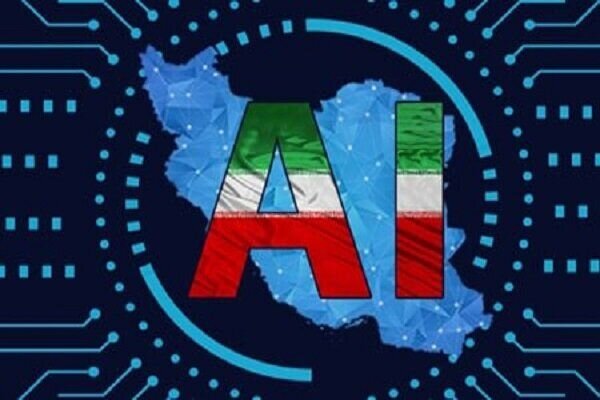TEHRAN –According to a report released by the Web of Science database, Iran ranks first for the highest number of documents in artificial intelligence (AI) among Islamic countries.
The country issued 2,638 AI documents between 2013 and 2022.
Saudi Arabia (2,465) and Turkey (2,303) were ranked second and third, respectively, IRIB reported.
Iran has also been ranked 14th worldwide in artificial intelligence.
Based on the report, the country ranks second in 3D printing and robotics, fourth in the Internet of Things, fifth in 5th generation (5G) communication technologies and big data, seventh in drone technology, and eighth in blockchains among Islamic nations.
The most scientific productions in the last ten years in artificial intelligence have been respectively related to Tehran University, Tabriz University, and Amir Kabir University of Technology.
Also, the data analysis shows that the number of scientific productions of artificial intelligence has improved in the last five years, reaching 577 documents in 2022 from 157 documents in 2018.
Robotics with 1,596 documents, and the Internet of Things with 1,270 documents followed artificial intelligence in terms of scientific production.
Blockchains with 7 documents had the lowest scientific production in the ten-year period.
Developing AI infrastructure
By allocating 50 trillion rials (some $100 million), the public and the private sector will develop the infrastructure for artificial intelligence operators in the next calendar year, which starts on March 21.
The importance of artificial intelligence cannot be denied. However, it’s hard to keep pace with the rapid [global] growth in the area, Rouhollah Dehqani-Firouzabadi, the vice president for science and technology, said, IRNA reported.
He made the remarks while attending the first meeting of the national steering committee’s working group on artificial intelligence.
The main objective behind founding the national steering committee is to promote and develop AI in the country with the help of both the private sector and the public sector, he added.
Dehqani-Firouzabadi went on to say that the national committee is not seeking to hold a share in management. It aims to facilitate and coordinate the development of AI by developing a streamlined, dynamic, and synergetic structure. It also endeavors to pave the way for individuals to participate in the development of artificial intelligence.
On December 3, 2023, President Ebrahim Raisi issued an executive order for the establishment of the 'National Steering Committee and the National Artificial Intelligence (AI) Center'.
Creating a complete and stable chain of ideas to market in AI, benefiting from AI for the economic progress of the country, planning to achieve a leading and sustainable position among the countries of the world, as well as identifying and nurturing talents in the field of AI are among the most important tasks of the national AI center.
Plans to develop AI
The Vice Presidency has prepared three comprehensive plans to develop artificial intelligence in different sectors.
Currently, artificial intelligence is the priority for the development of technology and is pursued with three programs, IRNA quoted Firouzabadi as saying
Artificial intelligence is a comprehensive technology and affects all other areas of technology, he highlighted.
“The plans in the field of artificial intelligence include scientific development programs that are mostly pursued in universities. The second plan is technology development programs that are pursued in companies that work in the field of artificial intelligence. And the third plan is the creation of a national technology hub in the field of artificial intelligence."
Iran to become a leading country in AI
In January 2022, Shahram Moein, head of the innovation and development center of artificial intelligence at the Research Institute of Information and Communication Technology, said, “Iran will be placed among the top 10 countries in artificial intelligence (AI) by 2032 based on the national document on artificial intelligence strategy.”
The study of the national artificial intelligence development roadmap started two years ago at the Research Institute of Information and Communication Technology and was officially completed by the end of November 2021.
“To draft this document, strategic documents of 23 countries in the field of artificial intelligence were evaluated so that areas such as environment, health, transportation, online education, energy, robotics, industry, agriculture, and security development are among the priority areas of AI.
Among the goals of this document are 80 percent of research to meet the needs of the country, the use of 45 percent of artificial intelligence in industries, $8 billion investment in artificial intelligence, and a 12 percent share of AI in the GDP,” he explained.
AI potential for human development
In July, the UN Secretary-General addressed the Security Council, emphasizing the potential of artificial intelligence to accelerate human development while also cautioning against the malicious use of what is revolutionary new technology.
António Guterres said that if AI became primarily a weapon to launch cyberattacks, generate deepfakes, or spread hate speech, it would have very serious consequences for global peace and security. “Look no further than social media.
Tools and platforms that were designed to enhance human connection are now used to undermine elections, spread conspiracy theories, and incite hatred and violence,” he said.
“Malfunctioning AI systems are another huge area of concern. And the interaction between AI and nuclear weapons, biotechnology, neurotechnology, and robotics, is deeply alarming.”
TAGS


No comments:
Post a Comment